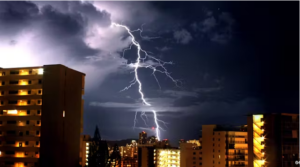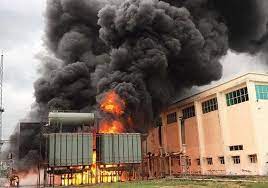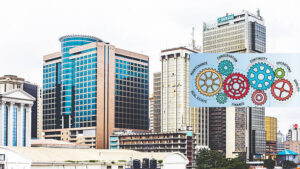In hospitality business energy is the blood and life. Without energy hotels seize to be so called.
From Lighting Lifts, Air-conditioner & Ventilation, Heating & Catering to Leisure & Fitness, are all services relying on constant supply of energy.
Energy use in hotels account for between 6 – 8% of operating profit worldover. However, in Nigeria energy costs double and sometimes triple the above percentages because of power availability and reliability issues.
Thus, optimizing energy use invariably increases a hotel’s revenue and profitability without sales increase.
While the design, architecture, location, environment and class play important roles in the energy consumption of the hotel.
A hotel can be divided into three areas, each of which needs to be considered separately for energy savings as they have different requirements:
- Guest room area (bedrooms, toilets, bathrooms etc)
- Public general service area (reception hall, bar, restaurant, meeting rooms, swimming pool, etc)
- Service area (kitchen, offices, store rooms, laundry etc)
Air Conditioning and Ventilation
Natural ventilation and free cooling relies on natural airflow between openings on opposite sides of a room or building – or rising warm air being replaced with cooler air sucked in through windows or vents.
It may be possible to use windows and doors to provide good levels of natural ventilation, allowing mechanical ventilation to be switched off or turned down to save money. This method can save on ventilation costs in hotel hallways, corridors, meeting rooms and common areas.
Regular Cleaning and Maintenance of ventilation systems can increase efficiency by as much as 25%.
Dirty or faulty fans, air ducts and components directly affect system efficiency and will increase running costs and risk of breakdown. The performance of the whole system should be reviewed annually.
Do Not Let Heating and Cooling Operate at the Same Time. This is a common problem in hotels and can be avoided by setting a temperature ‘dead band’
In most ventilation systems in hotels, fans often do not need to operate continuously. Variable speed drives (VSDs) can help to reduce costs by enabling the output speed of the fans to match requirements at different times of the day.
Hot Water – Some measures for energy savings in the production of hot water without compromising the comfort level, are:
- Insulation of piping and storage tanks.
- Installation of low consumption systems in showers and baths without reducing quality of supply.
- Installation of hot water consumption meters to monitor performance of services.
- Installation of programmed taps in toilets and services in the general service area.
Minimization of hot water leaks through correct maintenance of pipes and taps in showers, baths and hand basins.
Lighting

Lighting is one of the largest electrical energy consumers in hotels, as in many other kinds of utility buildings. Some 15% of the total energy consumption in hotels goes to lighting.
TIPS
- Install Low-Energy Efficient Lighting. Modern low-energy bulbs are attractive and provide very good light output.
- Upgrade standard light fittings to low-energy lighting like compact fluorescent lamps (CFL) will save 75% less energy, reduce heat and last 8-10 times longer, or LEDs, which use up to 80% less energy and provide around 50,000 hours of use.
- Replace blackened, flickering, dim or failed fluorescent tubes with triphosphor coated ones, which provide a more natural, brighter light for the whole life of the tube.
- Smart Switching-The use of building management system (BMS) can comfortably eliminate frequently switching when there is sufficient daylight and the room is unoccupied.
The use of automatic light regulating equipment such as daylight sensors, presence sensors and timers, should be connected to the building management system (BMS).
Some hotels use key cards which switch on the light when the guest comes in and goes off automatically when guest goes out.
In some instances Tungsten halogen spot lighting are commonly used in hotels to provide ‘sparkle’ to lighting arrangements. If these lights are on a low voltage circuit then savings can be achieved by using 35V bulbs with an infra-red reflective coating (IRC) instead of the standard 50W bulbs. The IRC reduces the power required to light the lamp but gives the same effect and light output as a standard 50W bulb while achieving a 30% energy saving and a 60% heat reduction.
Catering
Hotel kitchens consume large amounts of energy and are often one of the highest areas of waste. Effective energy management in a hotel kitchen can provide substantial savings, as well as improving working conditions.
Control is Key when it is not required to save energy, generate less heat and create a more comfortable working environment. Switch off grills, fryers and hobs immediately after use, along with lights and extraction fans when they are not being used.
Cooking Equipment Maintenance and Cleaning. Check seals and gaskets on oven doors to ensure a snug fit and minimal heat loss. Gas burners should also be checked weekly for a blue flame and efficient combustion. If the flame is yellow, this could indicate a problem.
Purchase Efficient Equipment – with running costs in mind.
Consider replacing any kitchen equipment over 15 years old with newer, more efficient models. Always consider the costs of the energy used over the lifetime of the product, not just the capital cost. Although gas-fired equipment can be more expensive to buy than electrical or steam equivalents, savings made on running costs make it an attractive option.
Recreational Facilities
Hotel leisure facilities are a major source of energy use. Implementing a few simple energy efficiency measures can keep costs to a minimum while maximizing guest satisfaction.
Maintain Swimming Pool Water Temperature at the Minimum Level to meet comfort conditions. Swimming pool water is usually heated to 28-300C where necessary.
Also ensure that pool hall air temperature is controlled correctly, at 10C above the water temperature to limit evaporation from the pool surface. To work efficiently, swimming pool filters need to be cleaned by backwashing all of the captured matter out of the filter. An effective backwashing system is one that only removes sufficient water from the pool to meet health and safety standards. In some cases, heat from backwash water can be used to heat new pool water through heat exchangers.
Install a Pool Cover when the pool is not in use to save energy by reducing the need for heating (water and pool hall air), pool hall ventilation and make up water.
Switch off Fitness Machines. Fitness equipment is used sporadically throughout the day in a heat. In quieter periods, ensure some machines and gym equipment are switched off to save energy and costs. Where possible, switch apparatus off at night along with any air conditioning. For individual machines, simple time switches can automate this process.
Moreover, when equipment is not in constant use, try keeping it turned off. Display clear instructions for guests on how to activate the equipment.
Think Solar Water Heating Opportunity. This can be effective for swimming pools and changing facilities and is relatively easy to connect to a conventional heating system. Solar heating units can give a substantial contribution to pool heating throughout the year, with the remainder provided by a conventional heating system. Always investigate the projected payback period carefully to make sure that your investment will pay off.

It should be emphasized that appropriate upgrade, selection of energy efficient technologies, proactive maintenance, training & cooperation of end users and the actual time of use of equipment should be optimized in the energy efficiency efforts to cut down operational expenditures (OPEX).
FullSpectrum Energy is in the business of helping organizations achieve energy efficiency, cost savings and enhancing productivity.
Contact your reliable partner TODAY


Victor Oyedu, FNSE, FNIEEE, CPQ.
Power Quality and Energy Management Specialist.
Publisher at Afrienergyonline.com &
CEO, FullSpectrum Energy Solutions Limited, Nigeria







